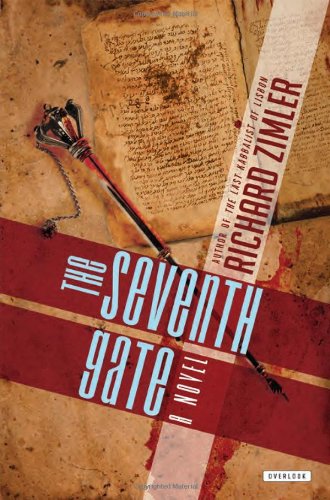The Seventh Gate
Sophie Riedesel is a young Christian German girl growing up in Berlin in the 1930s. Her father is a Communist and her brother is a “distant child,” likely autistic. Her best friend and her former babysitter are Jewish. Her life is as normal as a young girl’s can be – until the rise of the National Socialist Party, when, slowly but with certainty, every ideal, every principle, every expectation she has ever had deteriorates, people she has loved vanish from her life, both literally and figuratively. When her father “saves” the family by becoming a Nazi and she loses her mother from cancer, Sophie’s fragile tether to the life she once knew begins to shred.
Sophie’s “rocks” become the group of friends she meets through an upstairs neighbor, Isaac Zarco, a descendant of Berekiah Zarco, protagonist of Zimler’s Last Kabbalist of Lisbon. Some are misfits, some are former circus performers and all are engaged in an anti-Nazi group called The Ring. When two of the members are murdered, Sophie, an intensely bright young woman, begins an investigation, not realizing the dangers. Sophie’s relationship with Isaac, who is many times her age, begins to deepen. Through him she learns about Judaism and the kabbalah. Isaac’s journey is to uncover how to pass through the remaining – seventh – gate of kabbalistic teaching while being faced with the destruction of all he holds dear.
Yes, it’s a mystery on one level and there is mysticism, but that isn’t what this book is about in the final analysis. It is a personal, intense exploration of the maturation of a young woman into a force of nature, bearing unbearable pain, meeting the most difficult of obstacles, during one of the most horrific periods in human history. There is a quiet ferocity here that I haven’t experienced in a book in a long time. It is disturbing, heartbreaking, joyful all at the same time – enough to keep you awake.
This must be read. I haven’t been affected like this by a book in ages.










